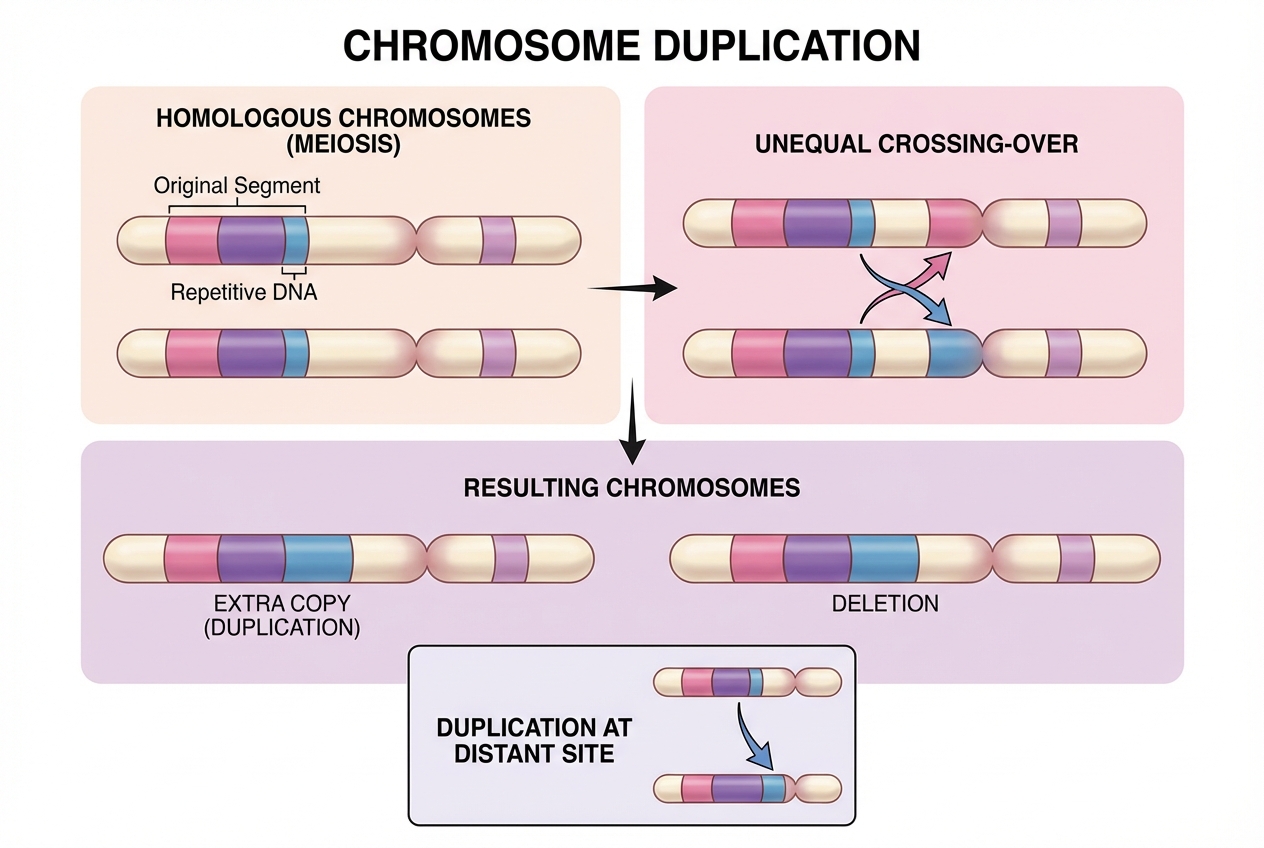
Chromosome duplication involves the replication of a chromosome segment. This type of mutation results in one or more copies of a DNA segment, which can sometimes include an entire gene or chromosome. Unlike deletions, duplications add extra genetic material. These duplications have played a crucial role in the development of the human genome and those of many other species. Typically, duplications occur due to unequal crossing-over during recombination, a process that happens when homologous chromosomes do not align properly during meiosis, the creation of reproductive cells. The likelihood of this event is influenced by how much repetitive DNA these chromosomes share. The outcomes of such recombination include a duplicated segment at the site of exchange and a corresponding deletion. Additionally, there exists an intriguing category of duplications where the duplicated DNA segment appears far from its original location.




